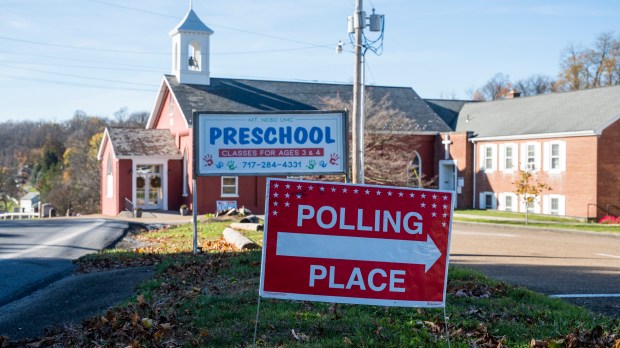Lenten Campaign 2025
This content is free of charge, as are all our articles.
Support us with a donation that is tax-deductible and enable us to continue to reach millions of readers.
Voters in California, Michigan, and Vermont on Tuesday chose to enshrine abortion rights in their state constitutions, while voters in Kentucky rejected an amendment that would have declared there is no right to abortion in their constitution.
The plebiscites came in the wake of this summer’s overturning of Roe v. Wade and returning the abortion decision to the individual states. A dozen states now have near-total bans on the procedure.
It was no surprise that California passed a measure to amend the state constitution to explicitly protect abortion rights. But one might have assumed that Kentucky, a largely conservative state that already has an abortion ban in place, would have voted to amend its Constitution to say it contained no right to abortion.
The Kentucky proposal was defeated 53% to 47%.
“We are disappointed in the defeat of Amendment 2. Legalized abortion is the greatest human rights atrocity of our day, and Kentucky Baptists will continue to work and pray that it remains illegal in our state,” Todd Gray, executive director-treasurer of the Kentucky Baptist Convention, told Kentucky Today. “We are grateful to have an Attorney General who will fight to uphold Kentucky’s pro-life laws in court, and we ask our state legislators to renew their commitment to passing legislation that protects unborn children made in the image of God.”
Next week, the Kentucky State Supreme Court will hear a challenge to the state’s abortion ban, which has more of a chance of succeeding, now that the proposed amendment was rejected.
Michigan, Vermont, California
In Michigan, the overturning of Roe v. Wade allowed a 1931 state law banning abortion to take effect, but the statute was recently blocked in court. Passage of Proposition 3 on Tuesday means the law will not be able to go into effect.
In the lead up to Election Day, Michigan’s Catholic Conference warned that Prop. 3 could permanently guarantee unlimited, unregulated abortion and allow abortions to be performed by anyone, at any point in pregnancy, and for any reason.
Michigan voters approved the proposal by 56% to 44%.
Meanwhile, in an overwhelming vote, Vermont became the first state in the nation to amend its constitution to protect “reproductive autonomy,” NPR reported. In 2019, the state Legislature passed a law “guaranteeing reproductive rights, including getting pregnant and having access to birth control,” the Associated Press explained. Then, the US Supreme Court’s Dobbs decision, which overturned Roe, prompted Proposal 5, which will add an amendment to the state’s constitution saying “that an individual’s right to personal reproductive autonomy is central to the liberty and dignity to determine one’s own life course and shall not be denied or infringed unless justified by a compelling State interest achieved by the least restrictive means.”
Vermont Right to Life says that the amendment “strips any opportunity for future legislatures to legally protect an unborn baby at any time throughout all nine months of pregnancy.” The organization also said Proposal 5 would shield abortion businesses from state oversight or regulation.
In the end, the vote was 77% to 23%.
On the west coast, California already had passed several measures aimed at easing access to abortion. On Tuesday, by a vote of 68% to 32%, Californians approved language that would explicitly guarantee access to abortion and contraception in the state constitution.
“We must fight back”
In Montana, with about 80% of votes counted by midday Wednesday, a ballot proposal that would protect nascent human life was struggling to gain traction. The count stood at 52.6% against and 47.4% for.
Montana’s LR-131 would affirm that infants born alive at any stage of development are legal persons; require medical care to be provided to infants born alive after an induced labor, cesarean section, attempted abortion, or another method; and establish a $50,000 fine and/or 20 years in prison as the maximum penalty for violating the law.
Lila Rose, founder of the pro-life organization Live Action, called the results “sickening and tragic.”
“States like California and Michigan are worse in a post-Roe v. Wade America than a pre-Roe v. Wade America,” she said in an email to supporters Wednesday. “Contrary to popular belief, the overturn of Roe v. Wade did not end abortion. In pro-abortion states, it has had the effect of expanding abortion. That’s because these states doubled down by passing pro-abortion laws, even offering to pay for mothers from out of state to come in to end the life of their children through abortion tourism, and through the expansion of the abortion pill.”
“We must fight back,” Rose said.
The year that saw the overturning of Roe v. Wade also saw the most ballot initiatives on abortion in history. Aside from the five on Election Day, Kansans defeated a measure on August 2 that would have provided that the state constitution could not be interpreted to establish a state constitutional right to abortion.




